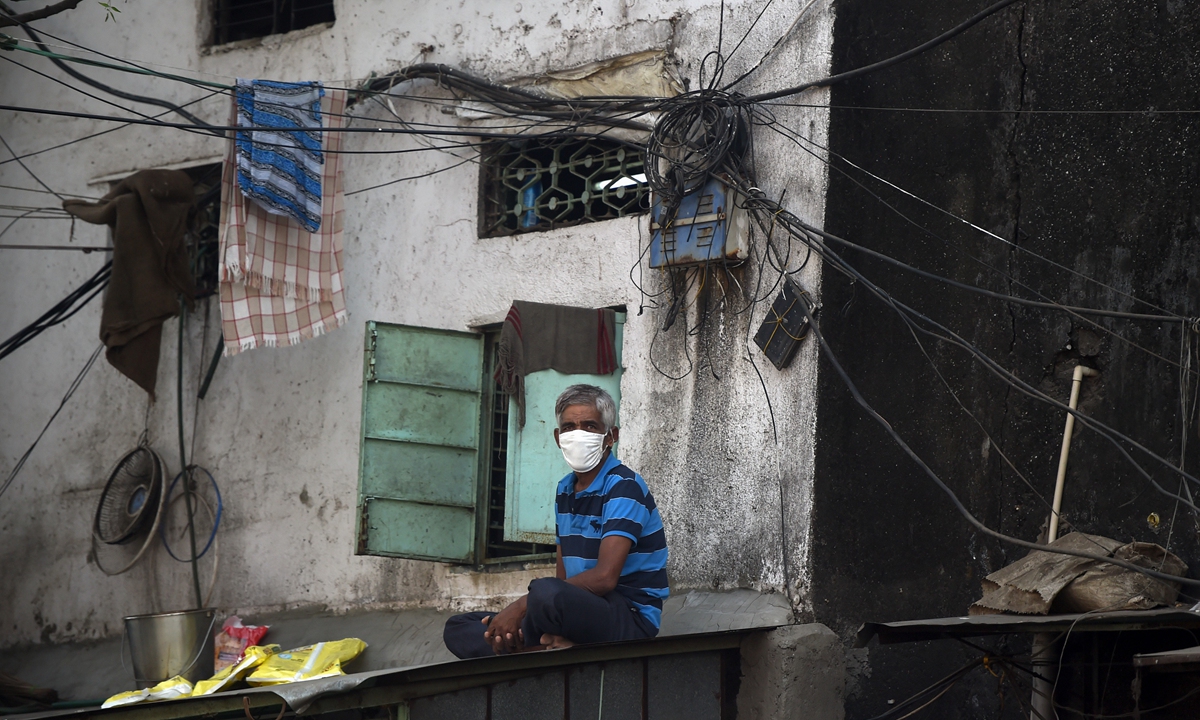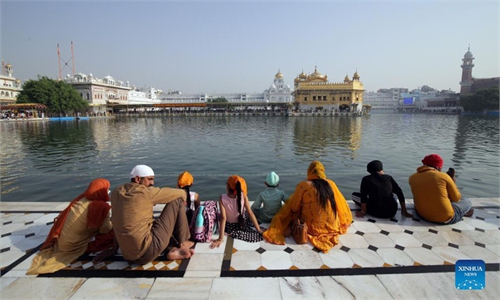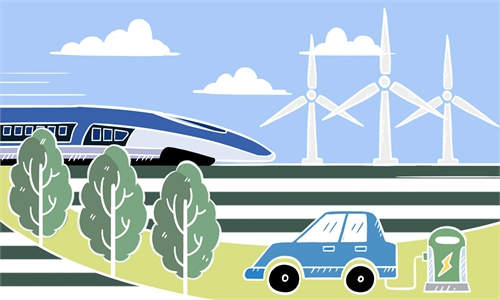GT Voice: Modi’s ambitious climate pledge incompatible with India’s starving population

A man wearing a face mask sits on a roof in the Dharavi slum during a government-imposed nationwide lockdown as a preventive measure against coronavirus, in Mumbai, India on April 16. Photo: AFP
Indian Prime Minister Narendra Modi's surprising and ambitious climate target of net-zero carbon emissions by 2070, announced at the 26th UN Climate Change Conference (COP26) in Glasgow, UK, has attracted wide attention and sparked a heated discussion.
While some people believe the new target will mark a promising first step in setting India on a path to emissions reduction, which is commendable, others appear skeptical as to whether India can deliver on its promises.
Such a question is not without foundation. According to the recently released Global Hunger Index 2021, India was ranked 101 out of 116 countries and regions, behind such economies as Sudan and Mali, and was one among the nations in which hunger was classified as "serious." Although the Indian economy is estimated to be one of the fastest-growing in the world in 2022, many of its people still live in extreme poverty.
Even though some in the West expressed disappointment that India's climate target is 20 years behind that of most other countries, the willingness of India, with its large poor population, to make a step forward toward limiting global warming is still commendable.
However, it is an open question as to whether India's economy can support its ambitious emissions-reduction target. The 2015 Paris climate agreement's goal to limit global warming to 1.5 C above pre-industrial levels is supposed to address climate change and its negative impacts. Yet, if emissions-reduction efforts fail to consider improving livelihoods, domestic pressure of hunger will likely derail environmental protection efforts.
In the case of India, its credibility on delivering on its climate promise will largely depend on whether it is able to tackle poverty and hunger issues. The same is true for other developing countries.
When Western leaders tout their efforts toward limiting global warming by pressuring the developing world to sign up for bigger targets, they are, in effect, passing the buck of climate action. Developed countries have used fossil fuels for decades or longer to enjoy the benefits of high living standards, contributing to historic emissions much higher than developing countries that are reluctant to stop using their share of fossil fuels to give up the interests of their poor population.
When Western leaders talked a big game about their emissions-reduction targets and criticized those deemed as uncooperative at the COP26, no one mentioned how they would ensure the development of poverty-stricken countries. If the West does not have a clear and workable plan for poverty alleviation in developing countries, the entire climate targets would be flawed for disregarding the fact that developing countries may not have the basis to deliver on their promises.
For developing countries, the hope of accessing financial help from the West during the climate cooperation seems increasingly like a long shot, given the West's broken 2009 promise of offering $100 billion annually till 2020 to support the poor countries' climate transition.
Under these circumstances, if any one from the advanced economies still think that the developing world needs to commit more to the climate action, they should go to India to experience the real hunger before lecturing others.



